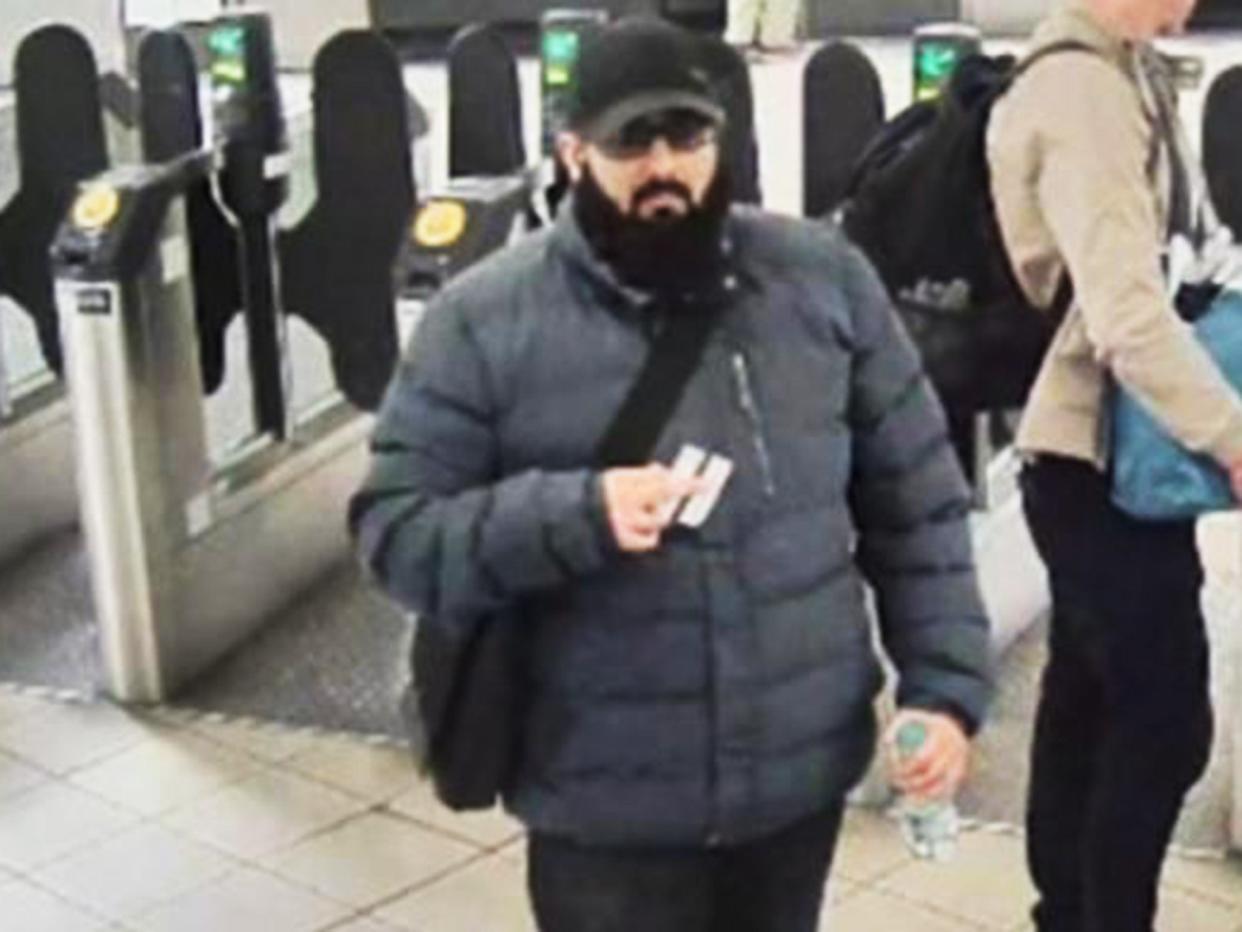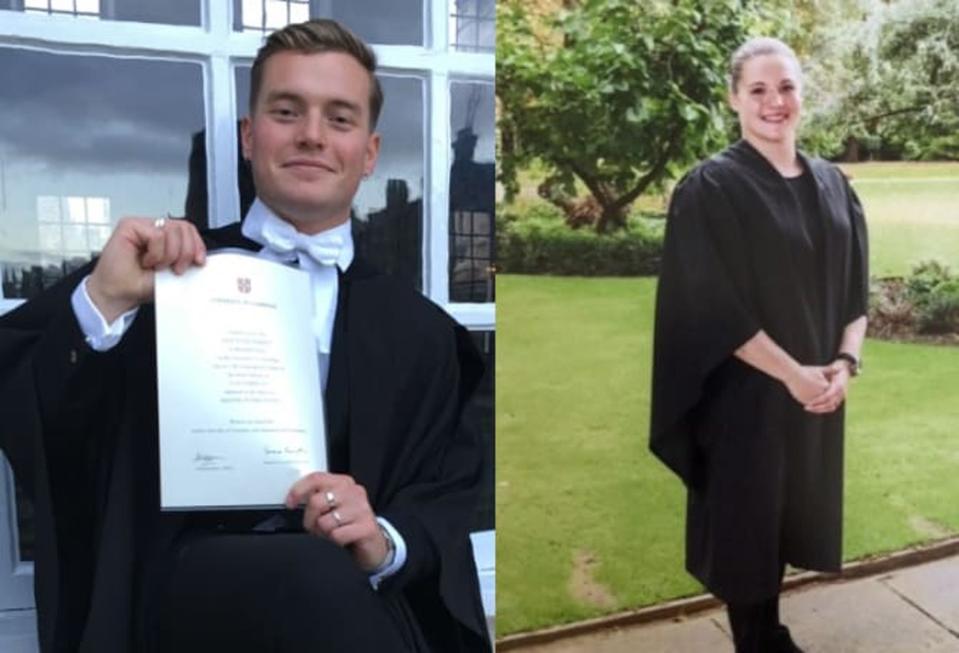Prison made terrorist ‘greater risk’ to public, psychologist warned before Fishmongers’ Hall attack

A psychologist warned that prison had made a terrorist a greater risk to the public than when he was first jailed, an inquest has heard.
Usman Khan launched a deadly rampage at Fishmongers’ Hall in London in November 2019, 11 months after he was automatically released from jail.
He had been in prison since 2010 for preparing acts of terrorism, and the inquests into his victims’ deaths heard that he associated with fellow extremists and radicalised other inmates.
Security officials believed Khan to be a senior figure in an extremist gang at HMP Whitemoor, where other inmates launched a terror attack in January 2020, and newspaper cuttings relating to Isis and terrorism were found in his cell.
Ieva Cechaviciute, a forensic psychologist who assessed the risk Khan posed while inside jail, said she had been “very worried” about his release.
A report shown to Friday’s hearing showed that Ms Cechaviciute warned officials about the threat Khan posed in May 2018, seven months before he was freed.
“Khan has made little progress while in prison, he doesn’t understand his own risk and being in prison has made him a greater risk than before by elevating his profile,” minutes from a meeting said. “He still refuses to accept responsibility for his crime.”
Ms Cechaviciute told the inquests that imprisonment had “exacerbated” the threat posed by Khan because of the “company he was keeping” and his violent and extremist behaviour.
“He didn’t have any convictions for violence but he was becoming quite aggressive and there were assaults committed by him or him organising them [inside jail],” she added.
“I saw that in addition to the offence he committed before, he could be violent himself.”
Official records show that Khan had complied with deradicalisation programmes and interventions during his sentence, as well as participating in GCSE courses and educational schemes.
The officials involved in those programmes gave positive reports about his participation, but Ms Cechaviciute and other psychologists expressed concern that it could be “superficial”.
While interviewing Khan for a risk assessment in January 2018, the psychologist said he denied committing terror offences that he admitted in 2012 and gave false explanations for bad behaviour inside jail.
“That is quite significant because it means that he does not have insight into his offence, which means he would not know what to do to stop himself or may not want to,” she told the inquests.
“He was saying the right things but it did not necessarily represent his behaviour … it was quite clear to me that he has not disengaged with extremist ideology.
“It was strong in his head and the best we could hope for was him to desist from offending rather than disengaging from the ideology.”
Ms Cechaviciute said that Khan’s engagement with interventions and education were not “necessarily an indication of reduction in risk”, because of contradictory information and the fact he could be “trying to create a positive image of himself”.
The report rated Khan as a medium risk for terrorist engagement, intent and capability while inside prison, but predicted that it would rise to “high” when he was released.
When Khan met Ms Cechaviciute to discuss the results of the assessment, she described him as “angry and bitter” and said he continued denying security reports about his prison activities.
The report set out a series of “warning signs” to look out for following Khan’s release, including unemployment, feeling of lack of purpose in life, boredom, coping with setbacks and desiring status.
The inquests previously heard that Khan applied for numerous jobs after being released but was refused from them all because of his terror conviction, and became socially isolated.

Mentoring sessions as part of the “desistance and disengagement” programme took place, but documents shown to the inquest suggest that Khan lied to his mentors about his past terror offending.
Khan’s first mentor, who can only be identified as M1 because of an anonymity order, said that during a March 2019 meeting Khan became angry about his restrictive licence conditions.
“He had hate in his eyes and real evil intent that I saw emerge straight away,” he added in a statement.
Recalling the incident, M1 told jurors: ”He was very calm, very relaxed, but when he got this negative response his whole demeanour changed and it was actually quite frightening … he realised I had seen him and he quickly tried to downplay it.”
A second mentor, who took over Khan's case later in March 2019, described him as a “manipulative” man who attempted to play an “alpha role” in everything he did.
M2 said Khan became “negative and rude” when challenged and there would be a negative response if he was not a “yes man”.
He recalled for him applying for “unrealistic” job roles that would violate his licence conditions because they involved phone calls and access to the public.
M2 said that Khan was also playing different officials off against each other, by giving false accounts of their interactions and creating a “circle of complaints”.
“He was very manipulative, if he wanted something he would tell different things and create stories to get what he wants,” he added.
The inquests heard that mentoring sessions stopped in August 2019 because the Home Office terminated its contract with the provider, and were not resumed before the attack.
The following month, Khan was allowed to move from a probation hostel into his own home, where the inquests heard he spent “his days doing very little rather than playing on the Xbox”.
Ms Cechaviciute said her report had predicted that “being bored and not doing much with his time” would be a risk factor because it would have left Khan thinking about the perceived injustices and grievances that fuelled his extremism.
He was being monitored by probation services and was subject to strict licence conditions, as well as regular public protection meetings that made decisions on what he could do.
Officials granted permission for Khan to attend an event held by Cambridge University’s Learning Together scheme, which he joined inside jail, on 29 November 2019.
He arrived at the event, at Fishmongers’ Hall, concealing a fake suicide vest and started a rampage armed with two knives shortly after 2pm.
Khan murdered two victims, Jack Merritt and Saskia Jones, and stabbed three others before being chased onto London Bridge and shot dead by police.
The inquests are examining the circumstances of his victims’ deaths and whether they could have been prevented.
Read More
Fishmongers’ Hall attacker was deemed safe to start prison course despite terror concerns

